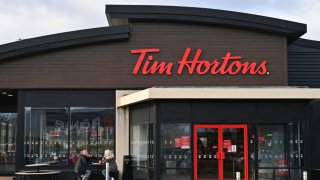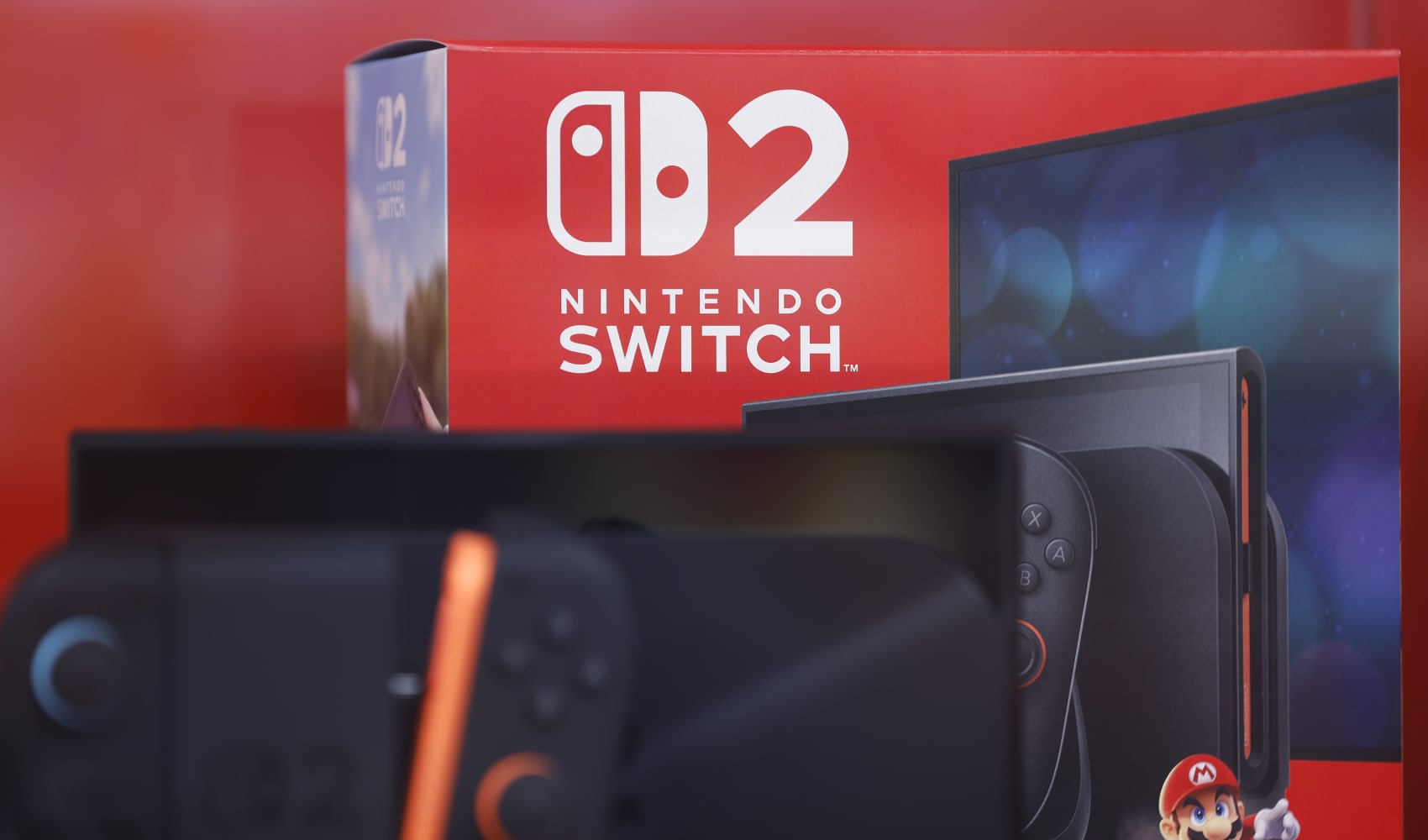
A general view of a Tim Hortons Drive-Thru coffeehouse and restaurant at Lakeside Retail Park on February 5, 2024 in Grays, United Kingdom.
- Restaurant Brands International's quarterly revenue was better than expected.
- Canadian coffee chain Tim Hortons was the restaurant company's strongest performer during the quarter.
Restaurant Brands International on Thursday reported quarterly revenue that beat analysts' expectations, fueled by better-than-expected sales at Tim Hortons and the company's international restaurants.
Stream San Diego News for free, 24/7, wherever you are with NBC 7.
"We certainly were planning for better absolute top-line results," CEO Josh Kobza told analysts on the company's conference call. "However, relative to the overall performance of our industry, we've continued to outperform key competitors in some of our largest markets."
Shares of Restaurant Brands rose 3% in morning trading.
Get top local San Diego stories delivered to you every morning with our News Headlines newsletter.
Here's what the company reported compared with what Wall Street was expecting, based on a survey of analysts by LSEG:
- Earnings per share: 86 cents adjusted vs. 87 cents expected
- Revenue: $2.08 billion vs. $2.02 billion expected
Restaurant Brands reported second-quarter net income of $399 million, or 88 cents per share, up from $351 million, or 77 cents per share, a year earlier.
Money Report
Excluding items, the company earned 86 cents per share.
Net sales rose 17% to $2.08 billion, boosted by recent acquisitions of Burger King restaurants in the U.S. The company's same-store sales increased 1.9%.
Out of Restaurant Brands' four chains, Tim Hortons performed the best, with same-store sales growth of 4.6%. Tims' efforts to attract more afternoon customers, like launching flatbread pizzas, have boosted sales. The chain has also been trying to expand beyond hot coffee by adding more cold coffee drinks and releasing Infusr energy drinks.
Popeyes' same-store sales rose 0.5%. Its new boneless wings have been a hit with existing customers, but the chain is hoping to attract new customers to the brand with the menu item and the right advertising strategy.
Both Burger King and Firehouse Subs reported same-store sales declines of 0.1% for the quarter.
"The absolute sales and traffic results at Burger King were clearly softer than we aspire to, but the business continued to outperform burger [quick-service restaurant] sales and traffic," Kobza said.
He added that short-term industry pressures are likely masking "incredible changes" at Burger King, which is in the middle of a turnaround.
Like McDonald's and Wendy's, Burger King has rolled out a $5 value meal in the hopes of bringing back customers who have pulled back on spending. Executives said the discounts are profitable for franchisees, which have agreed to extend the deal into October.
Restaurant Brands' international locations saw same-store sales growth of 2.6%. Executives said strong sales in Brazil, Australia and Japan helped offset weakness in China and the Middle East.
For the second half of the year, Restaurant Brands is expecting same-store sales growth of roughly 2%.
Two days before the quarter ended, Restaurant Brands completed its acquisition of Popeyes China, which will be included in its results next quarter. The company's new Restaurant Holdings segment includes the performance of Popeyes China and the restaurants it acquired from Carrols, which was Burger King's largest U.S. franchisee before Restaurant Brands bought it.






